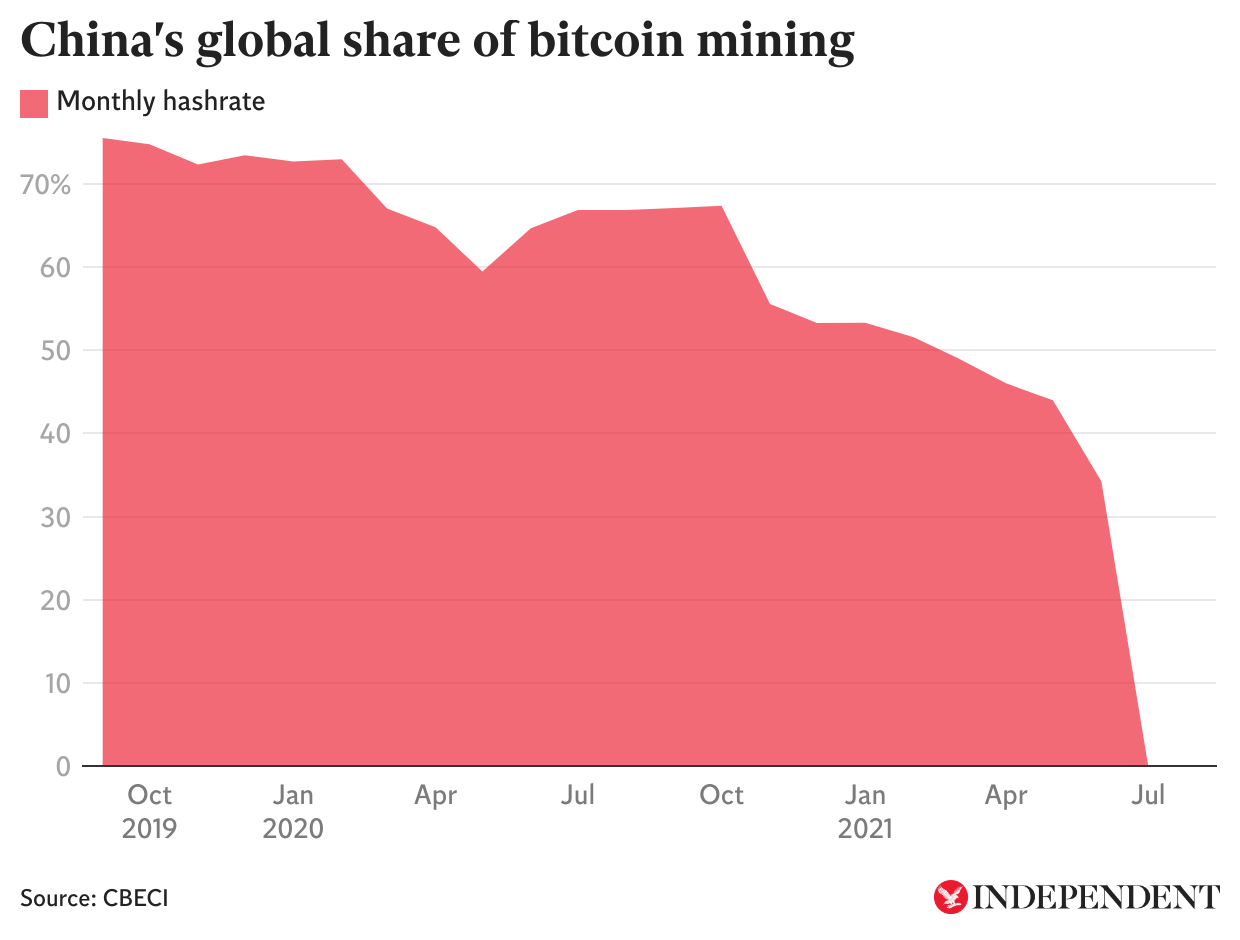Bitcoin’s climate impact ‘comparable to Greece’, report claims
Latest findings contradict other studies that found crypto mining is shifting to renewable energy sources

Bitcoin’s network is producing a similar level of CO2 emissions to the country of Greece, according to a new report assessing the cryptocurrency’s carbon footprint.
The findings contradict other studies that found bitcoin’s reliance on fossil fuels has decreased since a nationwide crackdown on bitcoin mining in China last year.
The state ban saw mining operations – the energy-intensive process required to generate new units of bitcoin – shift to other countries, with the United States and Kazakhstan seeing the biggest rise in crypto mining.
China’s reliance on fossil fuels – roughly 60 per cent of the country’s electricity generation comes from coal-powered sources – led to the assumption that the shift would be positive in relation to bitcoin’s carbon footprint.
But according to the latest article, published today in the journal Joule, the share of renewables that power the cryptocurrency’s network decreased from 41.6 per cent to 25.1 per cent following China’s clampdown.
“The hydropower miners had access to in China has mainly been replaced by natural gas in the US. This, and the fact that coal from Kazakhstan is much dirtier than Chinese coal, has increased the carbon intensity of mining by around 17 per cent,” Alex de Vries, one of the article’s authors, told The Independent.
“We estimate bitcoin could be responsible for 65.4 megatonnes of CO2 annually, which is comparable to country-level emissions in Greece.”
Limitations in the data used to assess bitcoins environmental impact mean there are “uncertainties in estimating emissions”, the report notes.
It also acknowledges that mining pool data is made even more uncertain by the fact that some miners may use virtual private networks (VPNs) to disguise their activities in countries that are hostile to crypto mining.
“Furthermore, emission factors remain a key source of uncertainty in estimates of cryptocurrency emissions,” the report stated.
“As there is often a time lag of one to two years until emission factors are published, emission factors over 2019 were used as a proxy for 2021 emission factors.”

The latest estimates add to a divisive debate surrounding bitcoin’s environmental impact, with advocates pointing to an increasing number of new bitcoin mining operations relying on renewable energy sources.
The Bitcoin Mining Council (BMC), which was set up by Elon Musk and other leading tech figures in 2021 following outcry against bitcoin’s CO2 footprint, recently reported that the global bitcoin mining industry is increasingly switching to renewable energy sources.
“Estimated sustainable energy mix was 58.5 per cent,” said MicroStrategy CEO Michael Saylor following the publication of the BMC’s latest report last month.
“This quarter [Q4 2021] we saw the trend continue with dramatic improvements to bitcoin mining energy efficiency and sustainability due to advances in semiconductor technology, the rapid expansion of North American mining, the China exodus, and worldwide rotation toward sustainable energy and modern mining techniques.”
The Crypto Climate Accord, a private sector-led initiative launched last April, has also committed to increase the use of renewable electricity for mining operations to 100 per cent by 2030.
“For cryptocurrencies to succeed in mainstream finance, users, investors, and other stakeholders must collectively shift incentives toward the use of more renewable electricity sources in networks to overcome environmental issues,” the latest report concluded.
“If this transition succeeds, cryptocurrencies may provide valuable lessons for other industries and processes that face similar environmental issues.”


Join our commenting forum
Join thought-provoking conversations, follow other Independent readers and see their replies
Comments